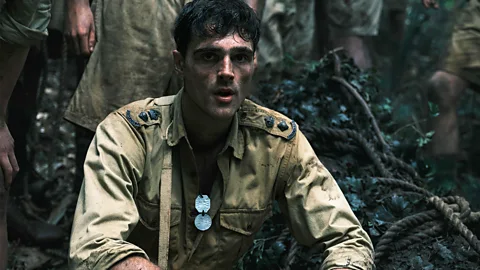 Curio Pictures
Curio PicturesThe Euphoria star shines in this remarkable adaptation of a Booker Prize-winning novel about an Australian prisoner of war in Thailand.
What do we want from our war stories? That’s a question at the core of this new five-part adaptation of Australian author Richard Flanagan’s Booker Prize-winning novel. Preparing to make a speech for a book launch, World War Two veteran Dorrigo Evans (Ciarán Hinds) ruefully says people just want tales “of heroism and mateship” – where he would rather give them “the truth”.
It’s certainly true that in general cultural discourse, there can be a tendency to present war history through a romanticised, “inspirational” lens – but on screen there is also a strong lineage of works that have sought to lay bare its abjectness, from Apocalypse Now to All Quiet on the Western Front. However, if this miniseries is not radical in that respect, it is, on the evidence of the first two episodes that have premiered at the Berlin Film Festival, set to be a stunning, shell-shocking piece of work nevertheless – as well as an impressive showcase for Jacob Elordi, the in-demand star who made his name with HBO series Euphoria and, after working with the likes of Sofia Coppola and Paul Schrader, continues to make judicious choices.
It sets out its stall right from the opening scene, in Syria in 1941, in which a group of Australian soldiers’ blokeish banter is cut through by a bomb explosion that gruesomely takes out one of their number and a Syrian child: filmed with tight, disorientating camerawork by director Justin Kurzel, the visuals drained of colour amid the murk of the landscape, it immerses you completely in the horror.
From there the story moves between three timelines. There’s young Dorrigo (Elordi) in 1940, as he is stationed to Adelaide for military training and forms an intense connection with his uncle’s young wife Amy (Odessa Young); Dorrigo in Thailand in 1943, now one of thousands of prisoners of war in the Thai jungle forced by the Japanese to help build Burma’s notorious “Death” railway; and 77-year-old Dorrigo in 1989, an affluent surgeon with a happy-ish marriage who nevertheless can never hope to forget what he witnessed all those decades ago – “the strange terrible neverending-ness of human beings,” as he puts it – or make others who didn’t experience it understand.
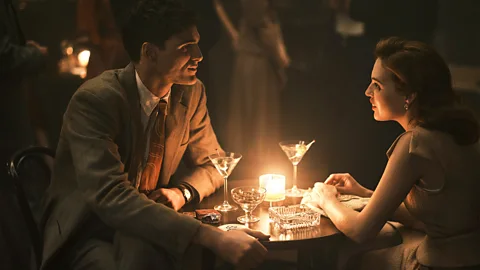 Curio Pictures
Curio PicturesThe older Dorrigo’s sense of alienation is deftly sketched in an early scene in which he is interviewed by a combative young journalist, prepared to question his blanket definition of the Japanese as “monsters”. It’s a measure of Shaun Grant’s skilled writing that as she prods him, and with his rebuke, you sympathise with both characters’ point of view. Similarly impressive is the way the show deals with Dorrigo’s extra-marital affairs, as both young and old man, with no crude judgements. There are no heroes and villains in either set-up, exactly, just messy feelings and a search for connection.
Where the drama possesses clearer moral definition is in the indisputable evil of the sadism directed at the captured Australian soldiers. It is in these prisoner of war scenes that Kurzel, known for films like Snowtown and True History of the Kelly Gang, really excels himself, creating grimly powerful images – take a scene early on of a heap of dehydrated men being transported in a truck, sticking their tongues out ecstatically as rainwater comes through the slats of their container. But he also deftly colours in the bravado and, yes, mateship, that (barely) sustains them in the most terrible of situations, as they share penis jokes and impromptu comedy skits amid the unbearable slog of their labour.
When it comes to their Japanese captors, meanwhile, the dangers of presenting them as one-dimensionally malign are counterpointed in part by the character of a conflicted young major. At the same time, the way one of his seniors talks about how cutting off someone’s head feels both “euphoric and horrible” could not be more chilling. It will be interesting to see how their perspective develops, as the episodes progress.
But this is a show as much about love as war, and it’s good that the romance has equal impact, thanks to the smouldering chemistry of Elordi and Young. Young gives a beguiling sense of a woman with a wisdom and self-knowledge beyond her years, while Elordi has simply never been better: returning both to the small screen and his homeland Australia, he holds the screen with a particular kind of reserved charisma, suggesting his character’s hidden recesses of pain and desire with mere flickers of expression. And even if he hardly resembles Elordi, Hinds is equally superb in the older timelines, his natural lugubriousness put to good use.
As for Kurzel, he brings an auteur’s confidence to everything here, creating a seamless symphony of visuals, editing and music. The Narrow Road to the Deep North feels like a searingly “true” account of war, indeed, but also one founded on the finest artistry, if that’s not too much of a contradiction.
The Narrow Road to the Deep North will premiere on Prime Video in Australia, New Zealand and Canada and soon on BBC1 and BBC iPlayer in the UK. A US release date is yet to be announced.

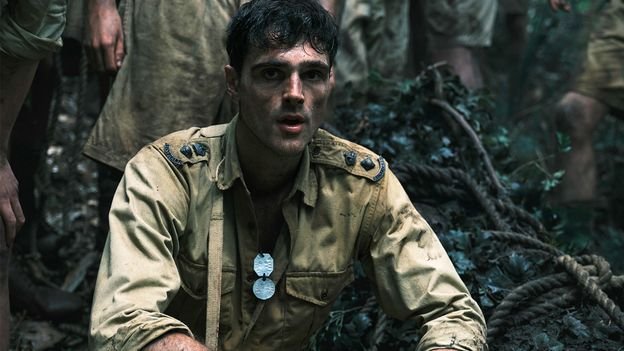

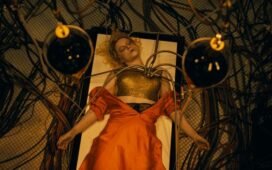
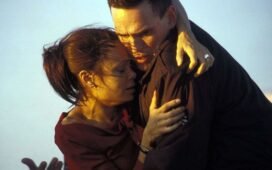

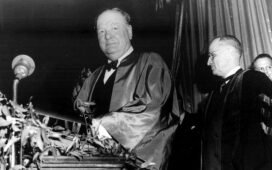


Recent Comments